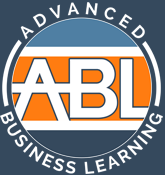Leadership Effectiveness *
Meeting Leadership Challenges *
Challenges *
Today’s employees don’t respond to a manager who gives direction, but rather commit to a leader who asks for their help in setting direction. Smart organizations create an environment of shared accountability and partnership between leaders and employees.
Offers insights into the many challenges managers face as effective leaders. Participants learn about the responsibility and accountability inherent to leadership positions, explore the many nuances around leading people in today’s dynamic workplace, and examine the leadership needs of their associates to create a work environment that ensures both performance and long-term fulfillment.

Reviewing Performance *
offers managers invaluable insights into what constitutes an effective employee performance review. A successful performance review process ensures shared responsibility for feedback and development. Participants examine “good” and “bad” performance review processes, explore best practices for conducting performance reviews and practice what they’ve learned using various true-to-life exercises and role-plays.
* Managing Conflict *
offers leaders specific skills for addressing conflict using a collaborative, win-win approach. People who don’t manage conflict well not only experience the negative aspects of destructive conflict, but also fail to reap the creative benefits of constructive conflict. Key competencies include: the ability to quickly identify sources of conflict so it can be prevented or addressed; the skills to address conflict constructively; the ability to identify common reactions to conflict and deal with them constructively; and the communication skills to manage conflict most effectively.
Motivating for Results
offers invaluable insights into the creation of a work environment in which associates consistently put forth their best efforts to succeed. Motivation is a critical element to successful performance. Leaders learn to influence motivation by defining the issue, instilling confidence, linking benefits to success, and ensuring value.

Delegating with Confidence *
offers invaluable insights into how to delegate the right tasks and the right level of responsibility to the right associates to maximize involvement and productivity. Participants learn that skillful delegation is essential to creating an environment where people can achieve significant results with fewer resources. Leaders learn how to delegate responsibility appropriately, even while remaining ultimately accountable for the outcome.
Communicating with Purpose
Without effective communication, all other leadership skills do not matter. Leaders must communicate effectively with employees to ensure work groups remain aligned with corporate and departmental strategies. Leaders learn to communicate effectively with employees to ensure work groups remain aligned with corporate and departmental strategies; avoid poor listening skills and sending unclear messages to their employees.

Building High Performance Teams
Getting work done through teams is a fundamental task of leaders today. Getting team members to align, engage, and give their best can be a critical success factor. First-line and mid-level managers need skills to help move their teams from functioning merely as a collection of individuals to performing together as a team at a high level. In this program, leaders explore participative leadership and shared responsibility, as key characteristics required for developing teams.
Creating a Culture of Engagement
Leaders are the stewards of organizational energy. At ABL we believe the purpose of a leader is to engage others in committing their full energy to create value and success. Creating a Culture of Engagement is a process facilitated session that is a highly interactive experience where leaders learn how to increase employee engagement and strengthen teams leading to tangible business results. It is a hands-on, process-oriented, action learning session.

Leading in Changing Times
Change in today’s organization is not the exception, but the rule. Implementing new strategies to succeed in today’s challenging environment requires people to contribute the full force of their discretionary energy, to see “change” as a benefit and to embrace their role in executing ongoing change for the betterment of the organization and themselves. However, employees often need help to see change in positive, energizing terms. The purpose of this program is to teach leaders how to motivate and inspire their employees and co-workers to contribute fully to implementing the organization’s strategy.
